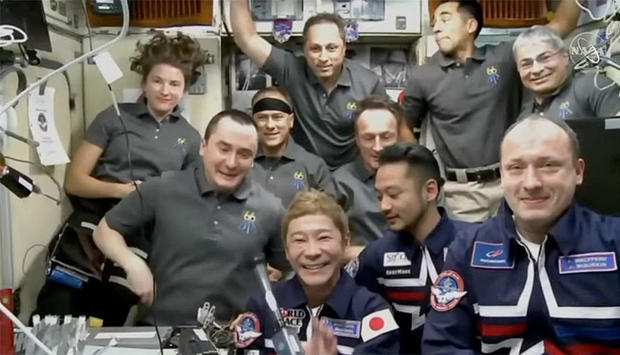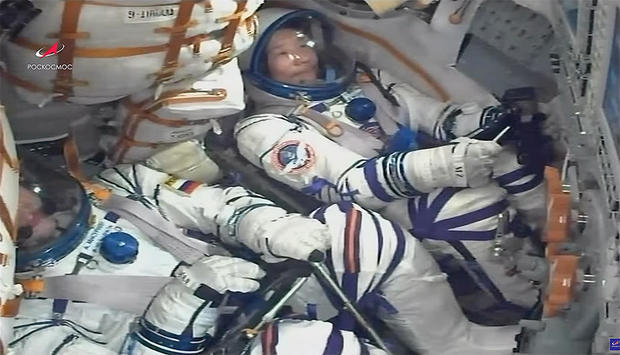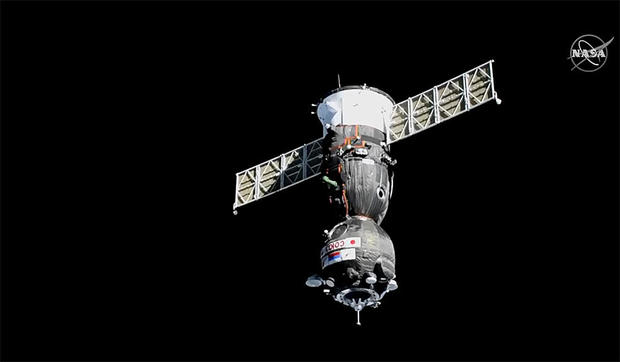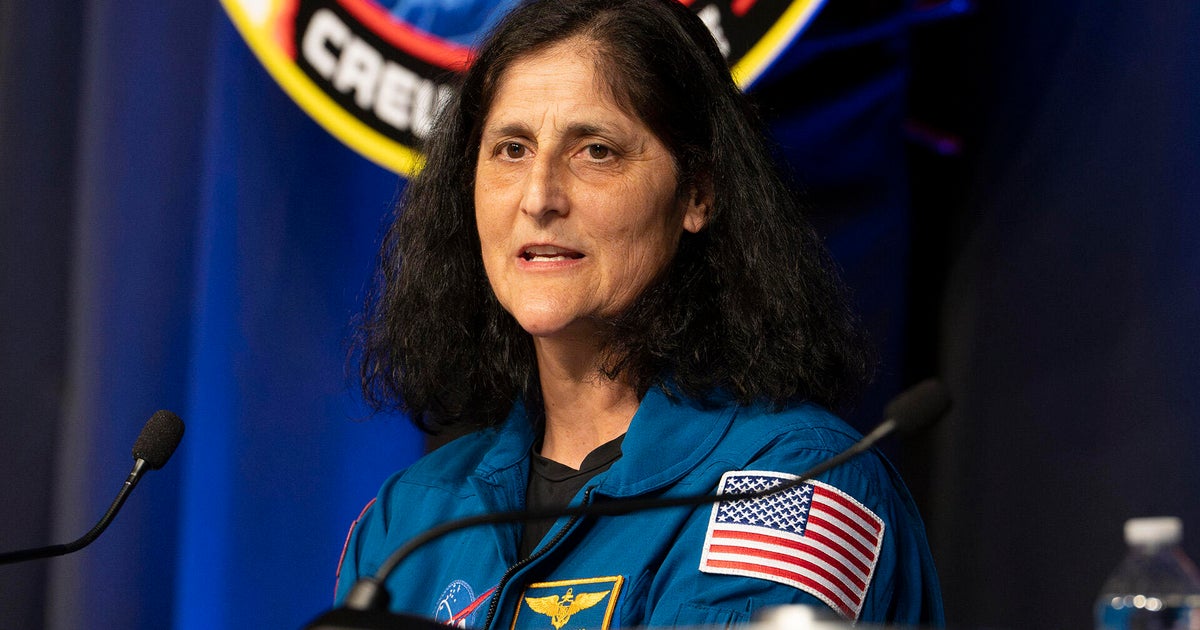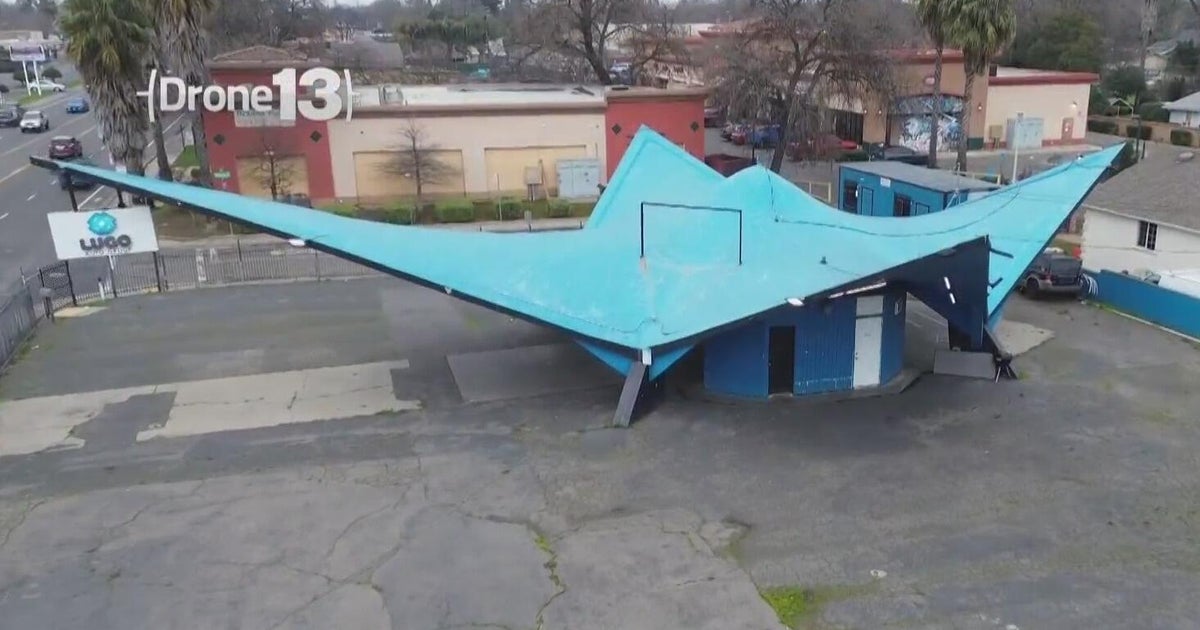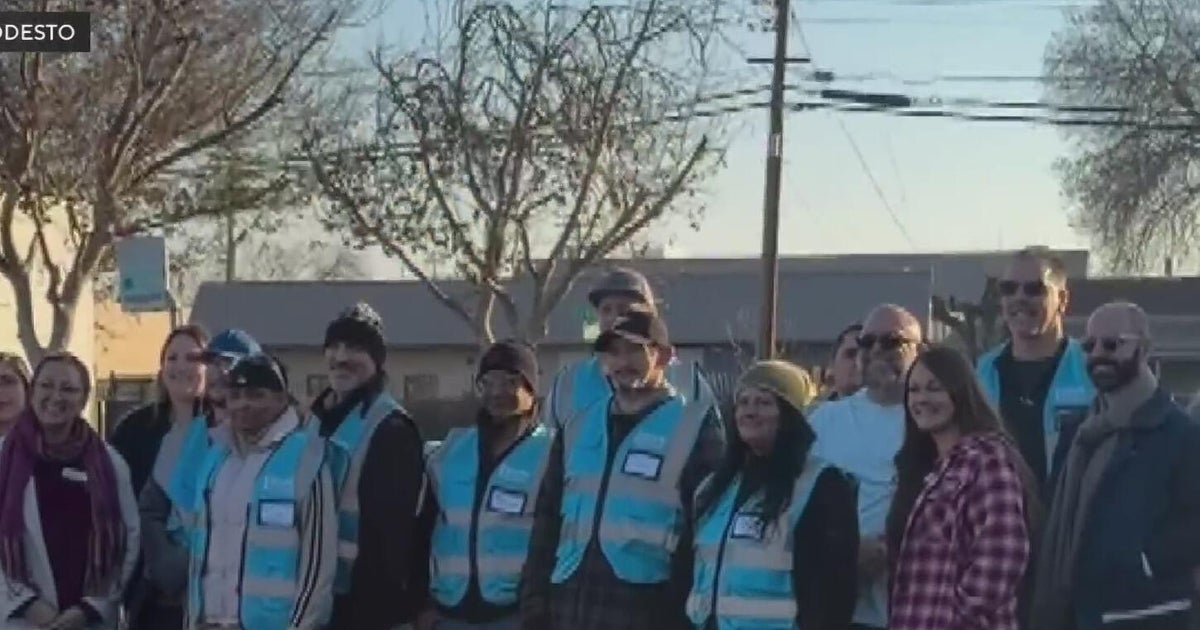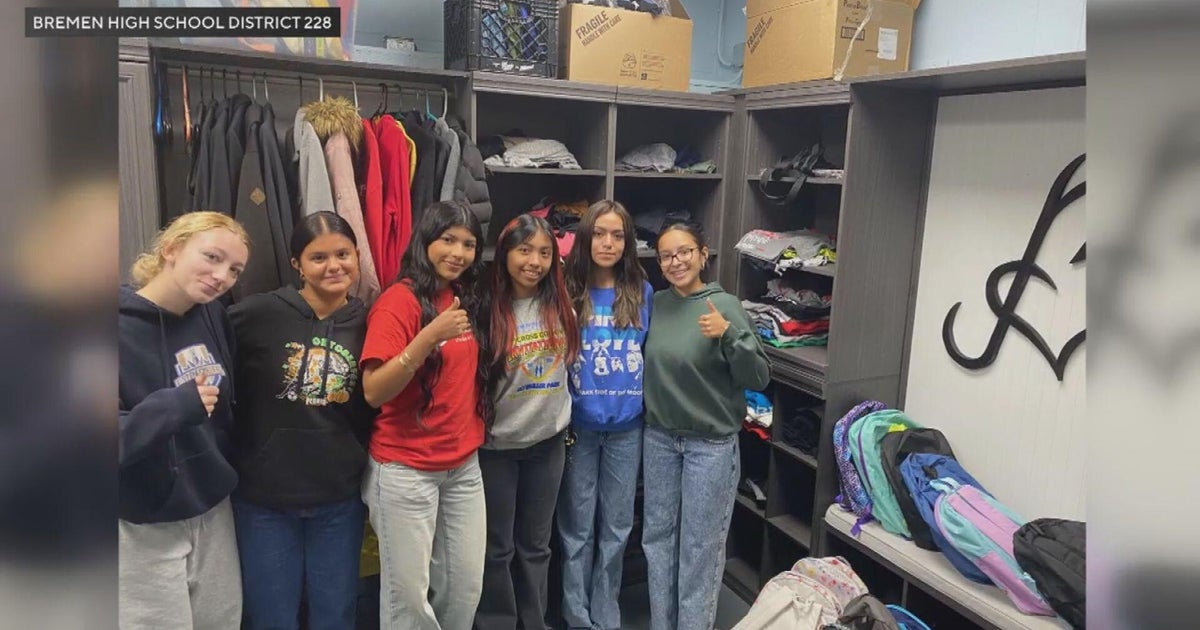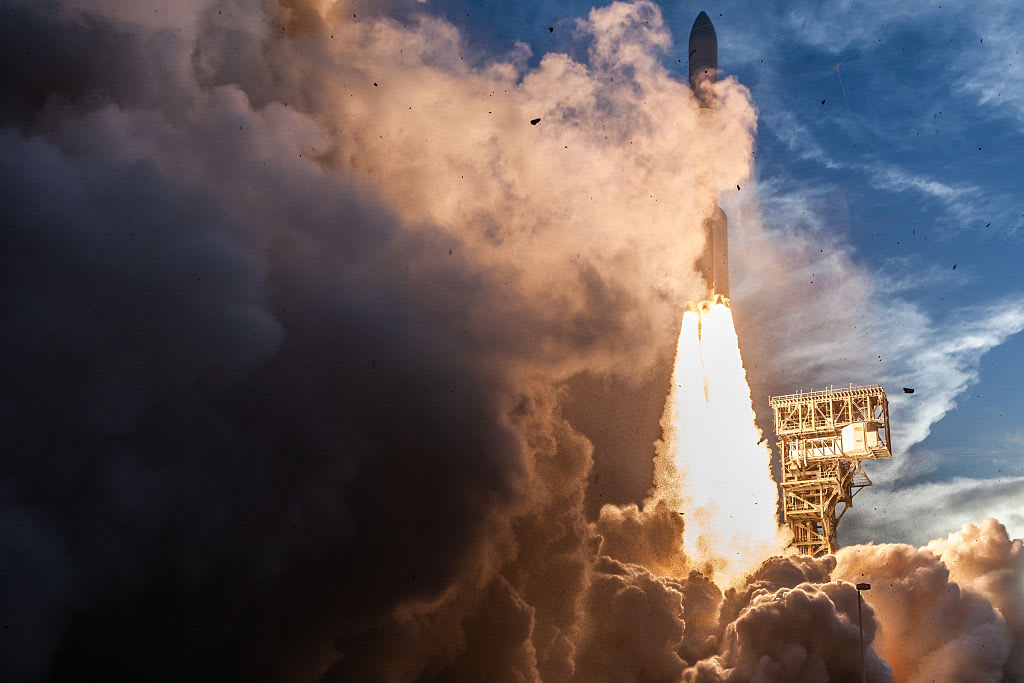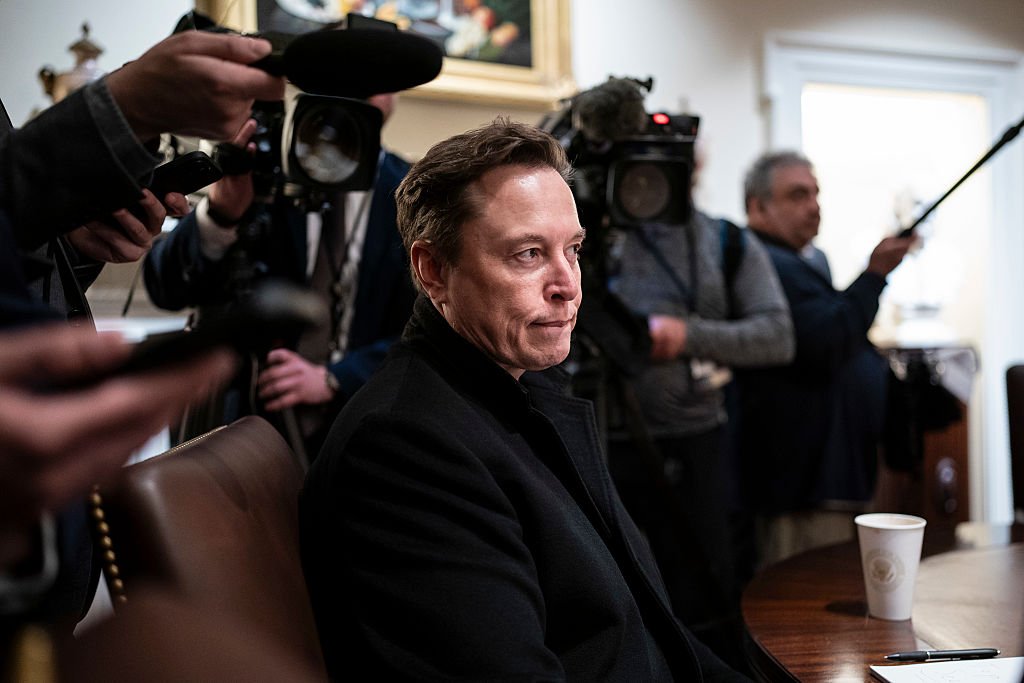Russian rocket launches carrying Japanese billionaire and his assistant to the International Space Station
A Russian cosmonaut, a Japanese billionaire and his production assistant rocketed into orbit Wednesday, chased down the International Space Station and successfully docked to kick off a 12-day visit, the first by paying "space tourists" in more than a decade.
The mission serves as a stepping stone of sorts to a much more ambitious flight by Yusaku Maezawa, the founder of Zozotown, the largest online fashion retailer in Japan. He is working with SpaceX to charter a flight around the moon aboard the company's Starship rocket when testing is complete.
But first, Maezawa, working through Virginia-based Space Adventures, is paying the Russian space agency Roscosmos an undisclosed amount to fly him and his assistant, Yozo Hirano, to the space station. Hirano is a film producer who will document the flight for Maezawa's YouTube channel.
"I feel like an elementary school student about to go on an outing," Maezawa said during a pre-launch news conference. "I didn't think I would be able to go to space... I feel fortunate to have this opportunity and to finally fulfill my dream."
With veteran cosmonaut Alexander Misurkin at the controls of the Soyuz MS-20/66S spacecraft, flanked on the left by Maezawa and on the right by Hirano, the spacecraft's Soyuz 2.1a rocket roared to life at 2:38 a.m. EST (12:38 p.m. local time) and climbed away from the Baikonur Cosmodrome in Kazakhstan.
Eight minutes and 45 seconds after launch, the Soyuz ferry ship was released from the booster's upper stage, solar panels and antennas then unfolded as planned and the spacecraft set off after the space station. After a carefully scripted sequence of rendezvous rocket firings, the Soyuz glided to a picture-perfect docking at the lab's space-facing Poisk module at 8:40 a.m.
"Our heartfelt congratulations with the successful docking to the ISS," Dmitri Rogozin, director of the Russian space agency Roscosmos, radioed. "How are our Japanese friends feeling?"
"I'm really fine," Maezawa replied in English.
After a series of leak checks, hatches were opened and the crew was welcomed aboard by Expedition 66 commander Anton Shkaplerov and his Soyuz MS-19/64S crewmates Pyotr Dubrov and Mark Vande Hei, along with four Crew Dragon astronauts: NASA's Raja Chari, Thomas Marshburn, Kayla Barron and European Space Agency flier Matthias Maurer.
Maezawa's "intention is to try to share the experience of what it means to be in space with the general public," Space Adventures President Tom Shelley told The Associated Press. He plans to document "simple things about daily life to maybe some some other fun activities, to more serious questions as well."
In 2018, Maezawa joined SpaceX founder Elon Musk at the California rocket builder's factory near Los Angeles to announce plans for chartering a flight around the moon using a huge new rocket that SpaceX now calls the Starship. He plans to invite about eight guests to join him on the venture.
"Ever since I was a kid, I have loved the moon," Maezawa said when the flight was announced. "Just staring at the moon filled my imagination. That is why I could not pass up this opportunity to see the moon up close."
At the same time, he said, "I did not want to have such a fantastic experience by myself. That would be a little lonely. I don't like being alone, so I want to share this experiences with as many people as possible."
Musk would not disclose how much Maezawa is paying for the trip, but said it was a "non-trivial" amount that would help fund the rocket's development. SpaceX hopes to launch a Starship on its first unpiloted test flight to orbit early next year. Maezawa's "Dear Moon" mission is tentatively planned for 2023.
In a quote provided by Space Adventures, Maezawa said he was "excited to share every aspect of my (space station visit) with everyone on Earth. I also see this trip as an opportunity to ready myself to be the best host possible when I, and eight talented crewmates from around the world, embark on the first civilian mission around the moon in 2023."
The Soyuz launching marked the fifth piloted trip to the space station this year, the third Russian Soyuz flight and the second carrying non-professional passengers.
A Russian actress and her producer visited the lab in October to film scenes for a movie in a government-sanctioned project. But Maezawa paid for his seat and Hirano's, making them the first "space tourists" to launch to the station since Cirque du Soleil founder Guy Laliberté paid for a visit in 2009.
Between Laliberte's flight and this year, Soyuz launches were used exclusively to carry professional cosmonauts and astronauts. Since 2006, NASA has paid Roscosmos some $4 billion for more than 70 Soyuz seats that were used by agency astronauts and fliers representing the European Space Agency, Canada and Japan.
But NASA's commercial crew program, utilizing SpaceX Crew Dragon capsules and, eventually, Boeing's CST-100 Starliner, has ended the agency's sole reliance on the Soyuz, freeing up Soyuz seats that Roscosmos can sell to make up for at least some of the lost NASA money.
